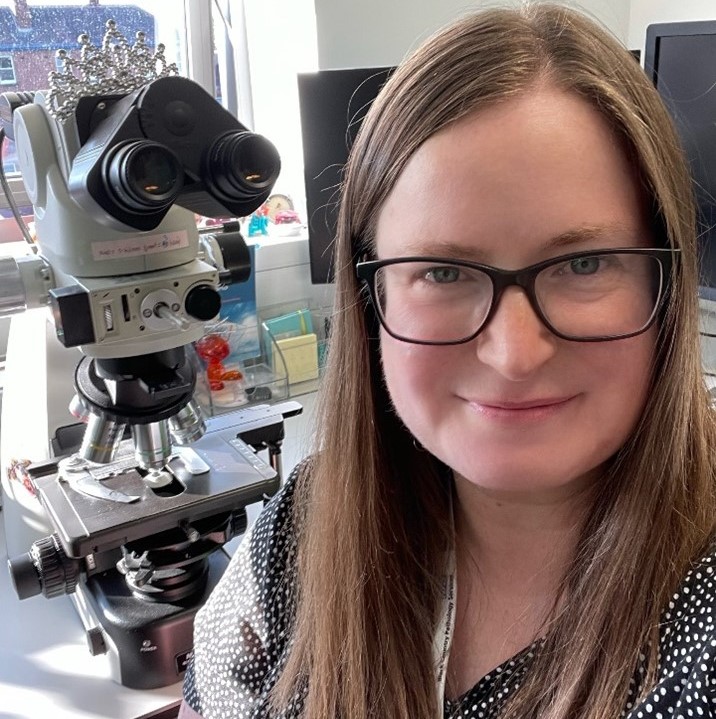Consultant in Cellular Pathology, Dr Abbie Pugh, has been made Honorary Chair of the Association of Clinical Pathologists (ACP) and is proud to continue a Black Country tradition at the same time.
Abbie, who works in Black Country Pathology Services (BCPS), takes on the role from Professor Julian Burton, an eminent autopsy pathologist and medical educator, for a five-year term.
Together with the other two honorary officers, Abbie will be preparing the Council agenda for quarterly meetings and attending management meetings for the Journal of Clinical Pathology, amongst others. The Chair of Council also represents the association on other bodies including the Royal College of Pathologists and the Association for Clinical Biochemistry and Laboratory Medicine.
Abbie said: “I’d like to express my gratitude to the organisation for entrusting me with this important role.
“I am looking forward to representing an organisation that I am passionate about and involving its members in shaping the organisation’s activities and initiatives – not to mention, keeping the link between Wolverhampton and the ACP. The association will be celebrating its 100th anniversary in 2027 and I look forward to celebrating with our members.”
The ACP, originally called The Association of British Pathologists, was established in 1927 by Dr Sidney Campbell Dyke. Interestingly, Dr Dyke has a Black Country connection and when he founded the ACP he was working as a Pathologist and Bacteriologist at The Royal Hospital, Wolverhampton, where he worked until his 1952 retirement.
Abbie said: “He was a well-liked and respected Pathologist and the ACP office premises bear his name, “Dyke House” in Dyke Road, Hove. The ACP also awards the Dyke Foundation Medal in his honour.”
In addition to his Pathology interests, he founded the Wolverhampton Civic Hall Arts Society and was once elected as an Independent for Tettenhall Council. When he retired from clinical duties in 1952, he was appointed curator of the regional histological collection at Birmingham University. Dr Dyke died aged 88 in 1975.
Abbie said: “Dr Dyke is not the only Black Country link with the ACP. I was actually inspired to get involved by one of our retired Consultants, Dr Bill Fuggle, around 2009.
“At the time, he held the post of Chair of Council and encouraged me to join the Trainee Members’ Group (TMG). From there, I went from regional representative on the TMG before taking on the role of the Chair of the TMG and the trainee editor of the ACP news, which gave me my first taste of Council meetings.
“Once I became a Consultant I had to relinquish that role but have since held many other roles in the ACP including Council Member, Communications Committee Chair, Website Editor, Histopathology Committee Chair (and Vice Chair) and Education Secretary. “
The ACP is one of the few remaining pan-pathology societies and its membership is open to all medically qualified Pathologists and those in training. One of its main roles is in the education of pathologists and it hosts educational meetings throughout the year, particularly in leadership and management. Membership is completely free for trainees and includes online access to the Journal of Clinical Pathology, which is the journal of the Association.
Find out more http://pathologists.org.uk
BCPS is the collaboration of all four acute Black Country and West Birmingham NHS Trusts – The Royal Wolverhampton NHS Trust, Walsall Healthcare NHS Trust, Dudley Group NHS Foundation Trust and Sandwell and West Birmingham NHS Trust.

